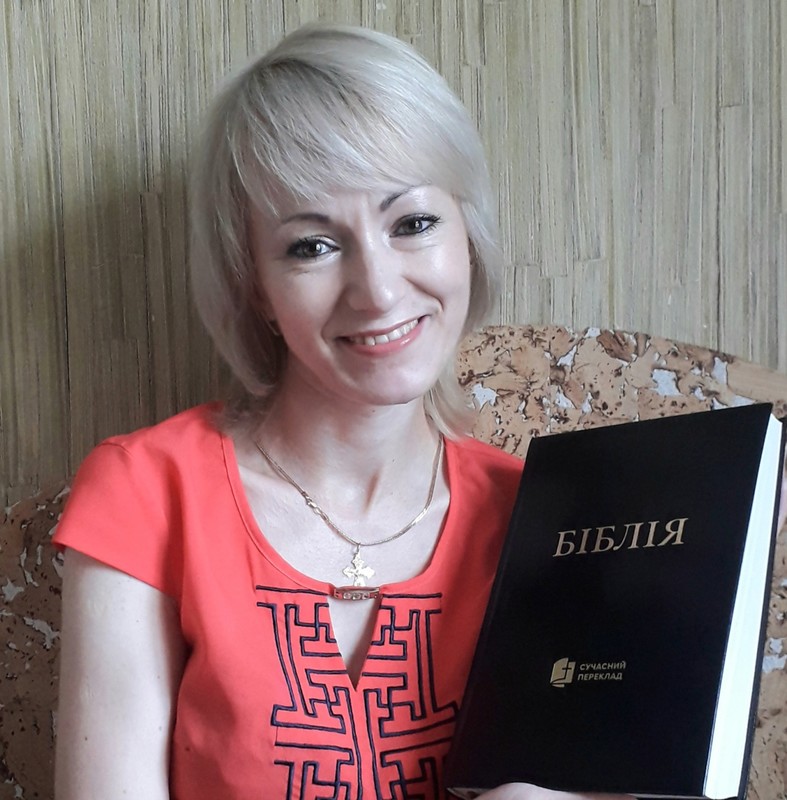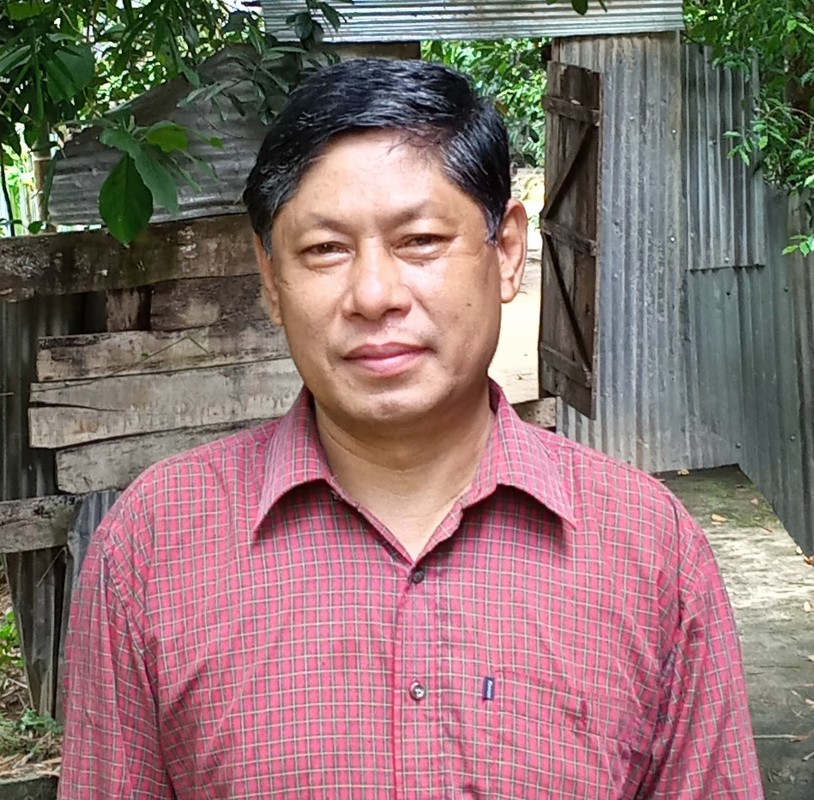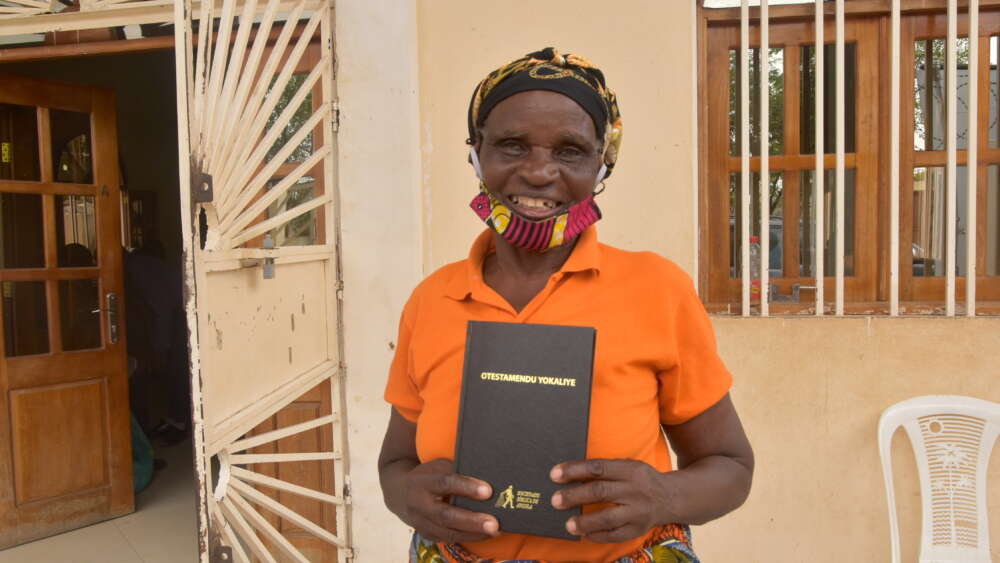It's a new world record: the Bible in over 700 languages
A good reason to celebrate in 2020
In a year where there has not been much to celebrate, it’s a relief to mark International Translation Day – September 30 – with some good news about the global spread of God’s word.
For the first time, the Bible has been translated in its entirety into more than 700 different languages. That means that just over 5.7 billion people (around 80 per cent of the world’s population) now have the whole Bible in their mother tongue.
“That’s a big number. But what really excites and motivates us is how God will use his Word to transform the lives of individuals, churches and communities,” said Michael Perreau, director general of United Bible Societies (UBS) Fellowship – a global network of Bible Societies, including Bible Society Australia.
This significant milestone was reported in August 2020 by progress.Bible, which compiles data from Bible translation agencies across the world, including UBS. Their data also shows the speed of Bible translation is increasing – the number of languages with the full Bible has almost doubled during the past 30 years.
Such progress is largely due to technological advancement, agencies working together to help local communities translate Scripture, and greater investment by supporters.
Significantly, UBS has produced nearly three-quarters of the world’s full Bible translations.
“It is so encouraging to see 700 languages with the full Bible,” says Perreau. “This is the fruit of generations of sacrifice and generosity. Each Bible translation takes years of hard work and dedication. We give thanks to God for the men and women who have spent so much of their lives bringing God’s Word to their communities and for those who have supported and prayed for that work.”
However, there is still much to be done. More than half of the world’s 7000 languages have not had translation of any form of Scripture, and 1.5 billion people still await the full Bible in their own language.
To help address this, part of UBS’ 20-year “Bible translation roadmap” is to complete 1200 translations by 2038. This would make Scripture accessible to another 600 million people.
“My prayer is that, amidst the many challenges facing the world, this will be the year that millions more will discover the riches of the Bible for themselves.” – Michael Perreau
The importance of Bible translation work has been emphasised in 2020, due to the impact of COVID-19. This is reflected in the theme for this year’s International Translation Day – “Finding the words for a world in crisis“.
“2020 has turned out to be a year of great uncertainty, with many seeking hope and reassurance,” says Perreau. “It is even more important that people are able to access Scripture in the language that speaks most deeply to their heart. My prayer is that, amidst the many challenges facing the world, this will be the year that millions more will discover the riches of the Bible for themselves.”
Despite the logistical difficulties of COVID-19, this year Ukrainians received the very first translation of the Bible undertaken in their own nation by Ukrainians (other translations had been done abroad). Taking 27 years to produce, the Ukrainian Bible Society was “flooded with messages and calls from people wanting to purchase a copy of the new Bible.”

Lyuba with her new Contemporary Ukrainian Bible Ukrainian Bible Society
Lyuba in Western Ukraine, who describes herself as an irregular churchgoer, said about receiving a copy of this Bible: “My day is totally different now as I begin it with the Word of God. It is like a sip of fresh water to me.”
In south-eastern Bangladesh, minority groups of Christians received the New Testament in their own native language this year: Chakma and Marma. In a country where there are 45 different ethnic groups – most of whom practice Buddhism or Hinduism – local churches were delighted to receive copies of the 1000 New Testaments distributed among Chakma-speaking communities.
“Before, I have been reading the Bible in Bengali, which is good, but reading Scripture in my own language is touching my heart and is encouraging others, too,” says Chakma-speaker Sunil Baron Chakma, a Baptist church member from the Khagra Chori district in south-east Bangladesh.
He adds: “Many of us have been praying for a long time for this [New Testament] and God has answered us! It will be a good way to spread the Gospel among the Chakma people. I really believe that being able to read the Bible in Chakma means that my language will live long, through each generation. Our mother tongue is not dying any more!”

Sunil Baron Chakma this year recieved a New Testament in his heart language Bangladesh Bible Society
For 71-year-old widow and mother of five Maria Augusto Afonso who lives in Angola in south-western Africa, the Bible has been an ongoing source of comfort and strength since her husband passed away two years ago.
However, this year is the first time she has been able to read the Bible – or any other book for that matter – in her native Umbundu language. Afonso was gifted a copy of the Umbundu New Testament, which was first published three years ago, through a project funded by BSA.
“I never knew that the BSA is translating the Bible into my native Umbundu language,” said Afonso. “Despite the restrictions of COVID-19, I appreciate the work that the BSA has done for the gospel of Christ.
“Today I am very happy because I never had any literature in Umbundu … The New Testament will help me a lot in sharing the Word of God because I understand and speak fluent Umbundu and the language is easy to understand.”
At home in Australia, COVID hasn’t stopped work on translating the Old Testament into Pitjantjatjara. In September, for the first time, the Pitjantjatjara Old Testament Translation Project conducted a virtual consultant checking workshop via Zoom. This project – to complete Australia’s first traditional Aboriginal language Bible – began in 2011.
Also this year, the Old Testament book of Ruth in Nyoongar – the language of Aboriginal peoples from the south-west corner of Western Australia – was released. The Story of Ruth is the second book translated into this language through BSA, with the first being the Gospel of Luke, published in 2014.
The ultimate hope for Bible translators, including those at UBS, is that within the next 20 years every language group, no matter how small, will have access to some Scripture in their heart language.
“They might have just the Gospels or the New Testament, and some others the whole Bible,” says Perreau. “If we keep the momentum up, we could see all languages having some Scripture.”
Email This Story
Why not send this to a friend?




